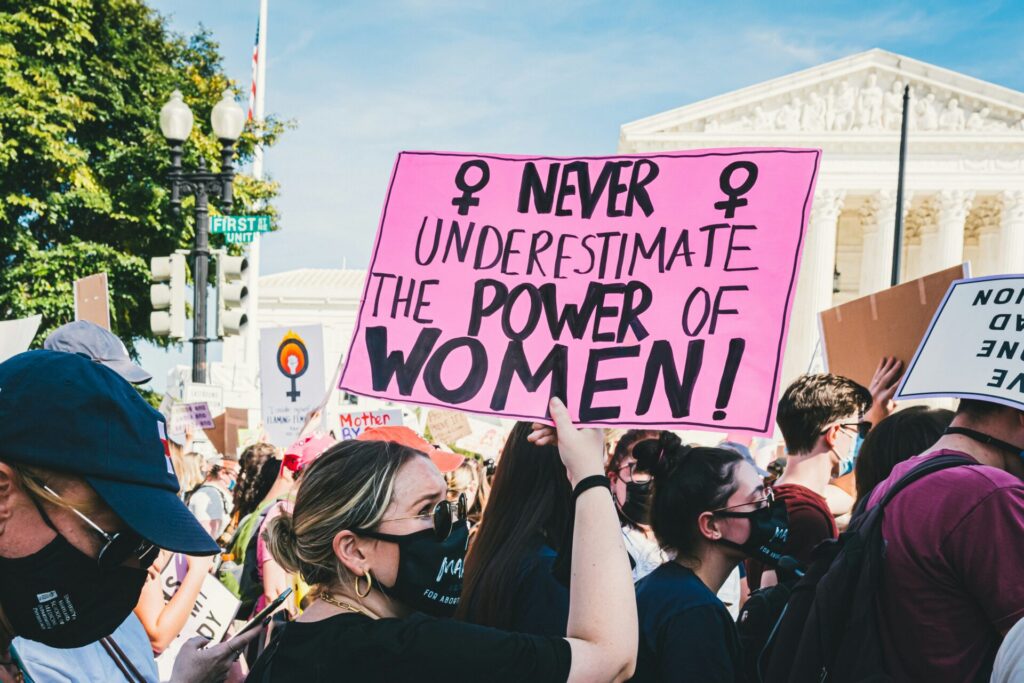When it comes to saving wildlife they’re superheroes. Female rangers are brave, game-changers and are paving the way for women to stand alongside men at the forefront of conservation.
But they need allies, support and recognition – which is the purpose behind World Female Ranger Week – which runs from June 23 – 30 and was created by adventurer and conservationist Holly Budge to celebrate and amplify the impact of female wildlife rangers on a global stage.
Building on the success of the inaugural World Female Ranger Week last year, which reached more than 500 million people globally, this year’s campaign is set to be even bigger with online and live events and a platform to raise vital funds for the rangers worldwide.
After all these women, many of who are mothers to young children, make sacrifices and face scorn and ridicule from their local communities to protect endangered wildlife, biodiversity and wild spaces around the globe.
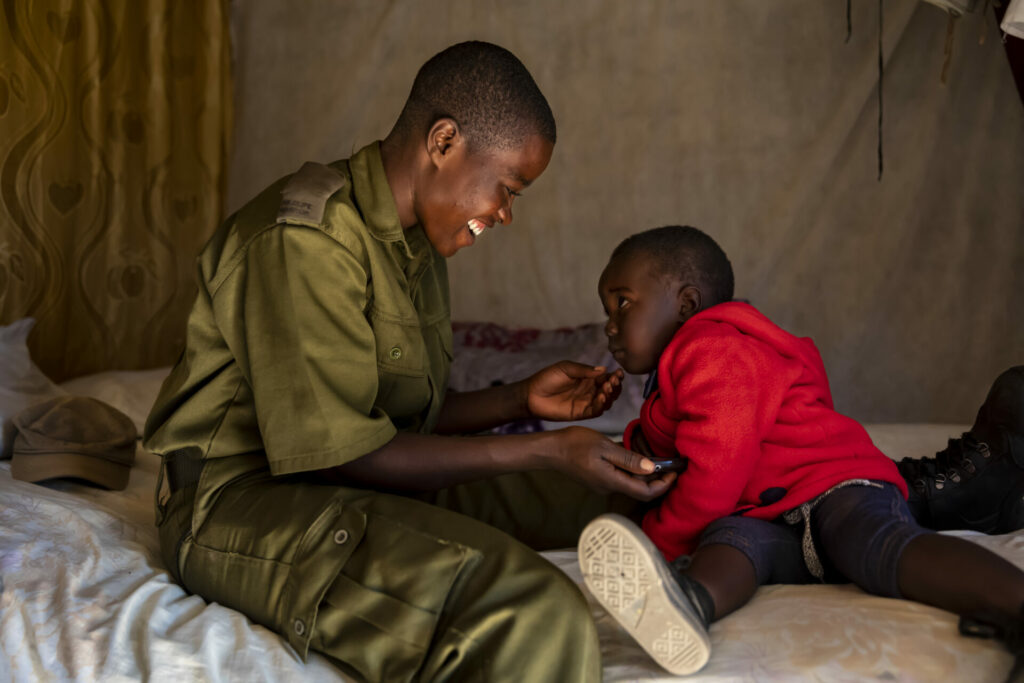
As champions of wildlife conservation, role models, educators and beacons of hope, female rangers are not only transforming attitudes towards the role of women around the world; they are showing the capabilities and success of females in traditionally male roles. However, less than 11 per cent of the global wildlife ranger workforce is female.
Women are natural communicators, protectors and invest their earned income into their families, so bringing gender equity into the workforce is enhancing community conservation efforts and relationships.
Many of these women have overcome adversity, poverty, and marginalisation. Becoming a ranger has empowered them, turned them into breadwinners and property owners, and has allowed them access to higher education and much-needed healthcare
Holly, who is the founder of the innovative charity How Many Elephants, as well as World Female Ranger Week, says: ‘Having patrolled with multiple ranger teams across Africa, I’ve seen first-hand how these bold women are impacting lives, protecting wildlife, uplifting communities and empowering other women.
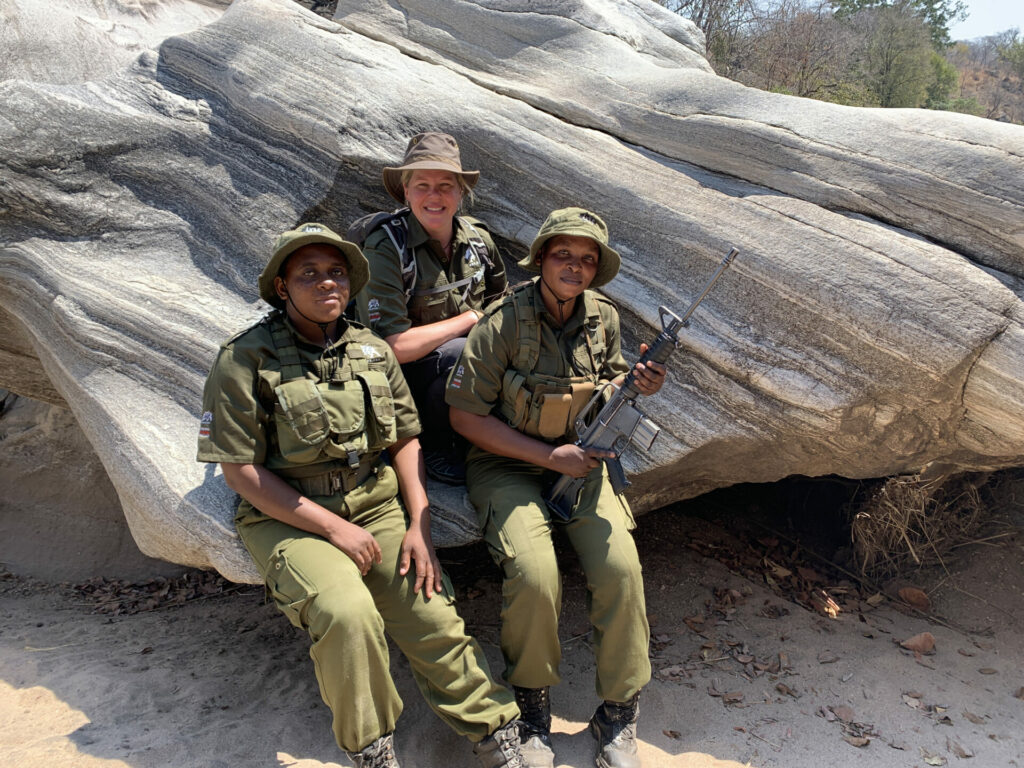
‘World Female Ranger Week highlights the significant gender imbalance in environmental conservation. My team and I will continue collating gender-specific data about female rangers globally, enabling us to identify their needs, find tangible solutions and help build effective policies to contribute towards positive outcomes – for female rangers and conservation as a whole.’
World Female Ranger Week Impact
The COVID-19 Pandemic crippled tourism and funding for conservation projects globally. The lack of tourists visiting National Parks led to many rangers losing their jobs or having significant salary cuts. The knock-on effect of this was huge. For example, one ranger in Africa may support up to 16 family members. Additionally, reduced vigilance in tourist hotspots left wildlife even more vulnerable to poaching.
The often-challenging work of rangers is paramount right now. Day and night, female rangers patrol wilderness areas, monitor wildlife, seize snares, work with communities and in some cases, arrest poachers, all to protect nature.
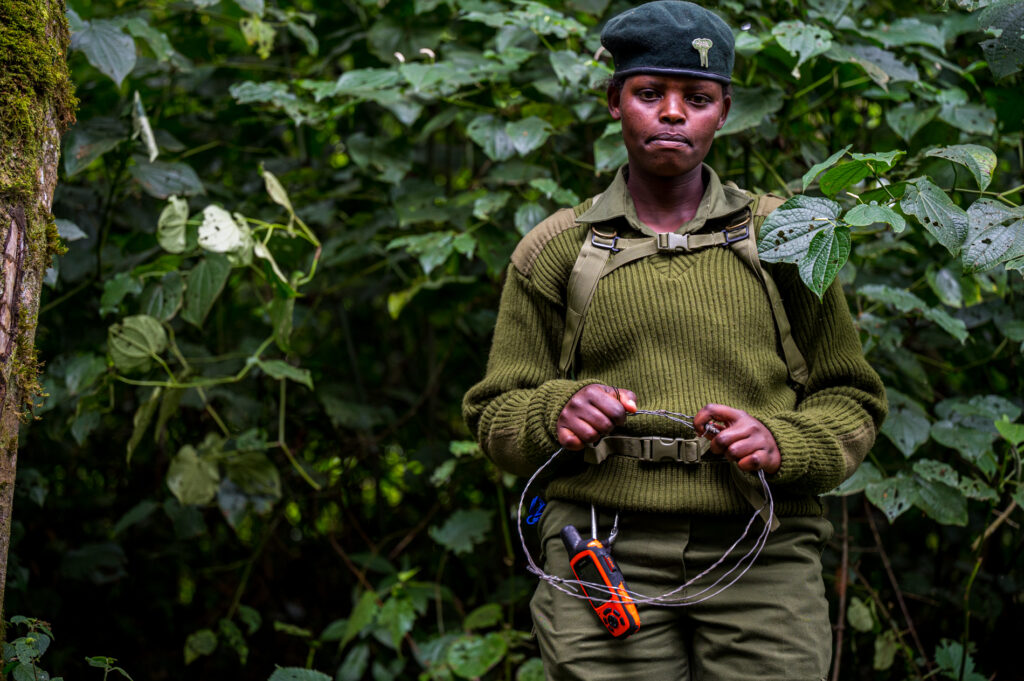
Some rangers are away from their families for long periods, sometimes facing workplace security issues and battling social stigma. Many of these women have overcome adversity, poverty, and marginalisation. Becoming a ranger has empowered them, turned them into breadwinners and property owners, and has allowed them access to higher education and much-needed healthcare.
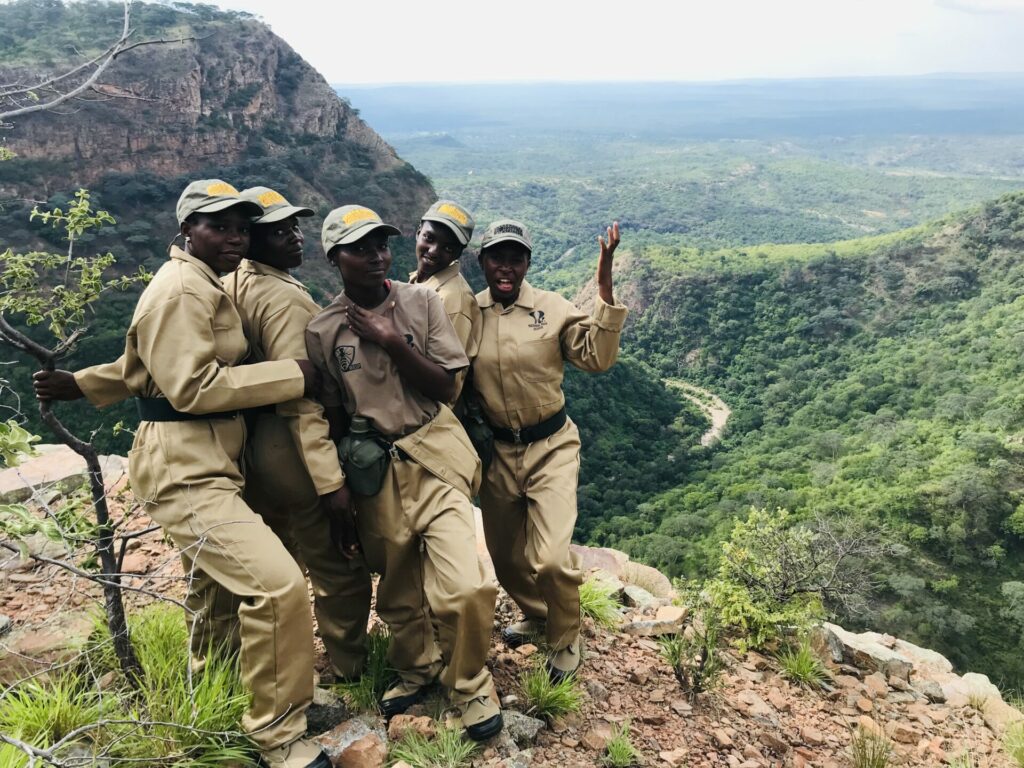
Holly and her team have identified 4,500 female rangers in 18 African countries so far, and more than 5,500 female rangers around the world, including in Guyana, China, Sri-Lanka, Indonesia, India, Tasmania, Venezuela and Scotland to mention a few.
World Female Ranger Week Ambassador, Fiona Jeffery OBE, founder and chair of Just A Drop, an international NGO that aims to reduce child mortality caused by polluted water and poor sanitation, says ‘World Female Ranger Week gives recognition and voice to both the courage and outstanding conservation work undertaken by female rangers. Proof that gender equality knows no bounds. I’m proud to be an Ambassador and help champion these incredible women.’
Here, we meet some of the women who give their all to protect wildlife from extinction:
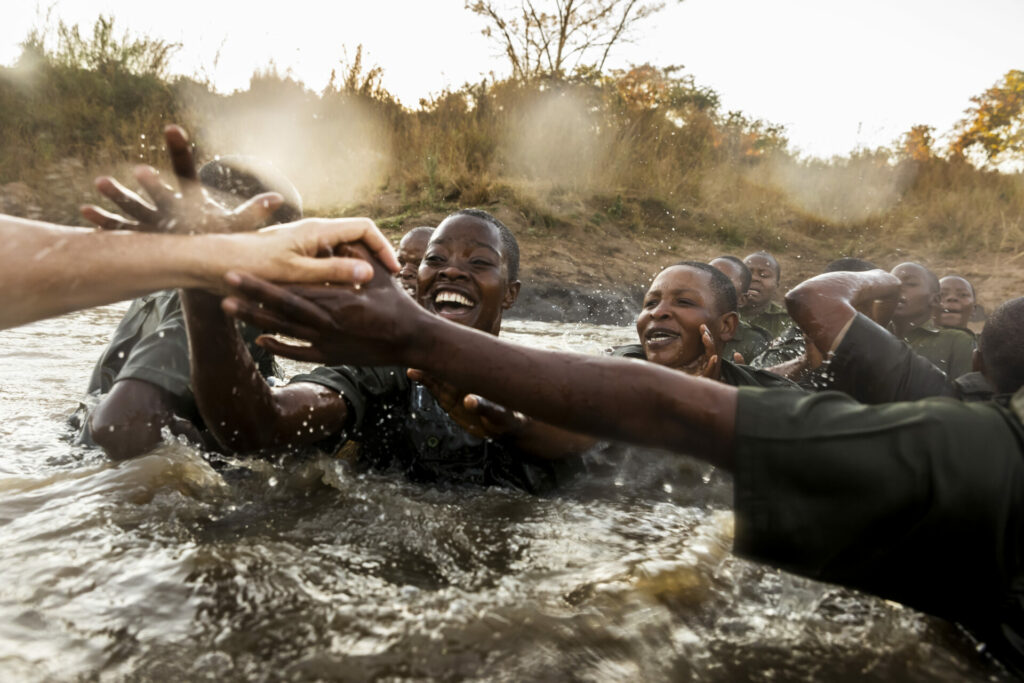
South Africa: Leitah Mkhabela
An original ‘Black Mamba’ Ranger, Leitah, 28, has been working for Africa’s first all-female team since their inception in 2013. Leitah, a ranger and a mother, says: ‘We cannot do it by ourselves. We need more eyes, more people helping us. When I started as a Black Mamba, people were scared of the training we went through. People said this training is for men and we couldn’t do it because we are women.
‘The hardest part was that even women were looking down on us. But people started to come around once the impact of the female rangers was clear. It has helped women in the community to see themselves differently. People have seen how we want to do this and so many women started to support us.’
Liberia: Grace Kotee
Grace is a ranger in The East Nimba Nature Reserve (ENNR) in Liberia. Growing up as a child in a rural village, Grace, 30, felt bad when she saw people killing and eating wildlife. She promised she would do something to protect the forest resources of Liberia and the world at large when she was old enough.
Grace still battles social stigma as some of her community think that working as a ranger ‘is not a feminine job’ and she is often criticized. ‘Society sees a ranger career as a male job and doesn’t encourage me,’ she says. ‘Sometimes when I am riding my bike they tell me that I will not bear [any more] children if I continue.’
A few of the challenges Grace faces at work are discrimination from her male counterparts and limited time with her husband and family.
Guyana: Claudia
Claudia, 29, is a ranger from the South Rupununi Conservation Society. Through education, research and conservation they are dedicated to sustaining and protecting the threatened wildlife of the Rupununi.
‘Before I became a ranger I was mostly doing farming,’ she says. ‘The biggest challenge was convincing my village leader that I can be a ranger even though I have a young baby.’
Kenya: Susan
Susan, 25, is a ranger from Big Life Foundation. Her family could not afford to pay for her secondary education, so she stayed at home and learnt traditional Maasai women’s duties, but she always wanted to do something more with her life.
‘In Maasai culture, like so many things, conservation and anti-poaching work has always been something that was done by men and girls are raised to become dutiful wives.
‘In my community not many women receive a salary like I d, and I am happy to be an example to other women and girls to prove that we can support our families just as well as men can.
‘I use my salary to support my three children and my mother. I am also saving up to pay for school fees because I want to finish the education I was not able to have as a girl.’
For more inspirational features on conservation and environmental heroes making a difference please visit our CHANGE MAKERS section








